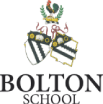.jpg?command_1=resize&width_1=220)
Bolton School Boys’ and Girls’ Divisions are now ESU Oracy Affiliate Schools thanks to their involvement in various activities organised by the English-Speaking Union (ESU). There is a growing culture of oracy in the School, where pupils are encouraged to participate in a wide range of extra-curricular activities and enrichment opportunities designed to enhance a wealth of skills.
Through their involvement, students develop communication skills, improve critical thinking and learn how to build effective arguments. Pupils are encouraged to present ideas and engage in friendly debate with peers, which also enhances their public speaking, listening and response skills. These activities also foster an interest in and passion for current affairs.
This academic year, pupils from both Divisions will enter all three of the ESU’s competitions: the Schools’ Mace debate, the Churchill Public Speaking Competition and the Performing Shakespeare Competition.
In Years 8 and 9, pupils are invited to Junior Speak Out Listen In. Here they receive expert coaching from experienced staff. A select number of students go on to represent the school at the Churchill Public Speaking Competition, the largest such contest in England and Wales, with around 400 teams taking part nationally. The three roles on each team are speaker, questioner and chairperson: these allow students to practise and excel in different skill sets. The competition pairs the speaker from one school with the chair and questioner of another, and encourages quick thinking and relationship building.
Additionally, Girls’ Division pupils complete a Level 1, Grade 3 qualification with the English Speaking Board (ESB) in the summer term of Year 8 to further develop speaking and listening skills. They work extremely hard to prepare, both in lessons and independently. In order to make a judgement of students’ oratorical success, independent adjudicators assess four key areas: A Prepared Talk; Open Exchange of Ideas; Speaking by Heart; and Reading to Listeners. In the summer of 2021, the ESB assessments took place on Zoom. Even after a year of relatively few opportunities for ‘in house’ speaking and listening activities, these provided evidence of exceptional ability.
Pupils in both Divisions take part in the ESU’s Performing Shakespeare competition, which involves in-school heats and the opportunity to progress to regional finals and a grand final in Stratford-Upon-Avon. To recognise boys’ and girls’ participation in this competition, Miss Talbot and Miss Naomi Lord (Foundation Director of Creative Learning and Partnership) will host an inaugural Speech, Drama and New Writing Festival in 2022.
Older students in Years 10 to 13 may be selected to compete in the Schools’ Mace. The oldest and largest debating competition for schools in England, the Mace challenges students to hone their debating skills in a fun and competitive environment. Working in teams, students develop their approaches to speech-writing, public speaking and critical thinking: all useful skills both in school and beyond.
Olivia Sample in Year 13, who was on the team that impressed judges at the regional finals last year, said: ‘Partaking in the Mace debate not only furthered my confidence in public speaking but also allowed me to work collectively with people of varying academic backgrounds, whether that be Arts or Sciences. Furthermore, being involved in topical debates in turn led me to become more interested in niche subjects that I had never contemplated before.’
In addition, the Speak Out Listen In programme in the Girls’ Division operates as a lunchtime club for younger students and a curriculum enrichment option for the Sixth Form. This provides a platform for the development of skill, which spans a range of ages and levels of experience. Participation is growing rapidly and supported well by a burgeoning number of student mentors, who share their expertise with those eager to learn more about debating, public speaking and Shakespeare in performance.
Sophie Hackwell in Year 12 said: ‘My involvement with the Speak Out Listen In programme has given me a greater understanding of the world around me, and has allowed me form better judgements based on listening to others’ opinions and seeing their perspective.’
Miss Sarah Talbot, Director of Theatre Studies, Speech and Drama in the Girls’ Division, said: ‘As a consequence of their learning in a culture of oracy, students develop vital skills which will make them more appealing to both admissions tutors at FE institutions and employers. In addition to the ability to communicate effectively using the spoken word, through the Speak Out Listen In programme, students develop skills including leadership, collaborative problem solving under time constraints, reflection and the ability to respond positively to feedback, and evaluation of their own work and that of others.’
The Boys’ Division is soon to add an optional range of Drama and Speech assessments to its offer. Pupils will have the opportunity to flex their English abilities and showcase their creativity through a variety of performing arts assessments: acting, musical theatre and communication skills. The assessment framework will provide pupils with an opportunity to measure their progress against an internationally applied standard. In addition to individual Speech and Drama exams, the school will pilot a partnership scheme with the Octagon Theatre – a weekend Young Company – offering group exams and diplomas to pupils who successfully audition to join. As pupils progress through levels, they build self-confidence and self-esteem as well as amassing new skills.
In Bolton School’s Primary Division, the Junior Girls’ School has for the past two years embedded an exciting Oracy Project across the whole curriculum. This initiative ensures that oracy attains the same status as numeracy and literacy in the classroom, with teachers prioritising the development of key skills related to oracy in every subject. Girls in Year 6 also enjoy taking part in ESB assessments. The Junior Boys’ School also runs a very popular after-school LAMDA club, which provides similar speaking preparation and examinations for the boys.




.jpg&command_2=resize&height_2=85)


















.jpg)